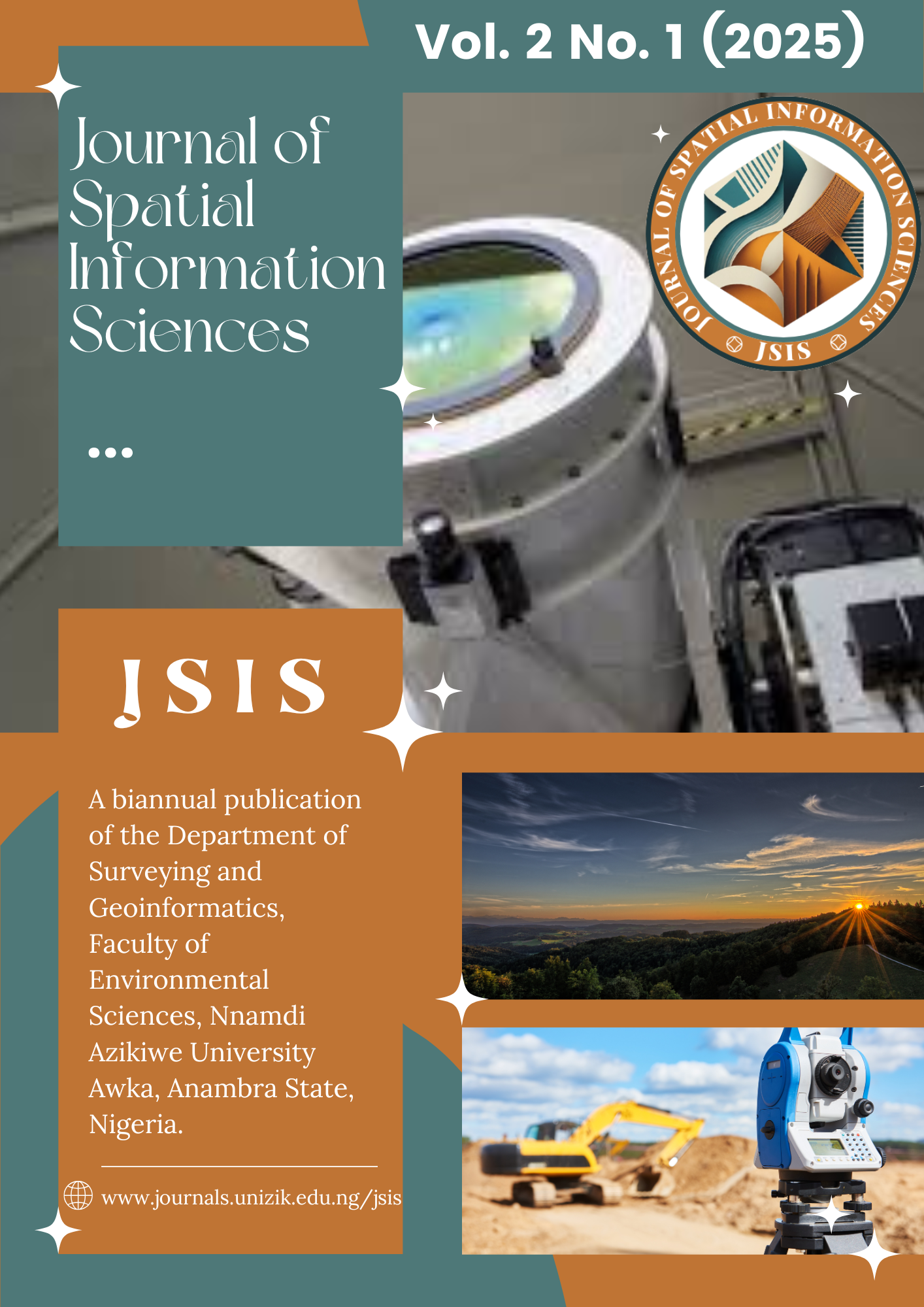Evaluating the Consistency of GNSS Repeat Measurements: An Investigation into the Effects of Orbital Errors on Same-Time, Same-Date Observations in Different Years in Abuja, Nigeria
DOI:
https://doi.org/10.5281/zenodo.14947243Keywords:
IGS, PPP, GNSS, Consistency, orbital errors, Repeat MeasurementsAbstract
High-accuracy satellite orbits and clock synchronization are vital for the International GNSS Service, supporting precise urban mapping and infrastructural development. However, by treating the predicted orbits as fixed, the orbital errors may be partially assimilated by the estimated satellite clock and hence impact the positioning solutions. This study presents the evaluation of the consistency of GNSS repeat measurements, taking interest in the investigation of the effects of orbital errors on same-time same-date observations in different years in Abuja, Nigeria. The study adopts the determination of the GNSS Static observations (minimum of two hours per session) on the chosen stations, investigation of the impact of GNSS orbital errors on repeat measurements, analyzing and characterizing sources of variability in repeated measurements. Our study shows that precise repeat observations can be attained by thoroughly mitigating errors from other observable sources, enabling reliable detection and management of recurring geodetic deformations in deformation monitoring. The RMSE values of 0.040m for both approaches demonstrate that the observations from both years exhibit comparable levels of precision and accuracy, meeting geodetic positional certainty standards. Therefore, it is recommended to perform observations with scrupulous care to eliminate other error sources impacting the precision of positional data.
Downloads
Published
Issue
Section
License

This work is licensed under a Creative Commons Attribution-ShareAlike 4.0 International License.





